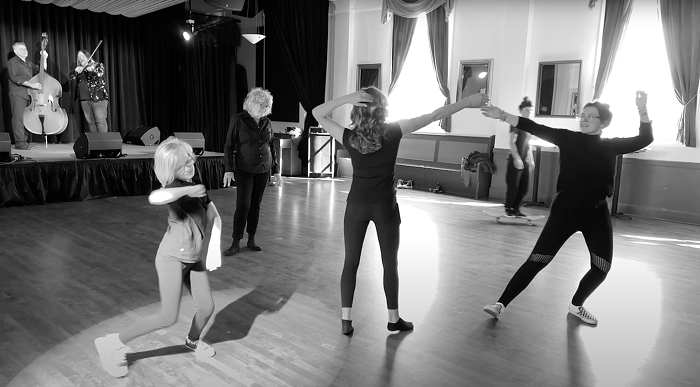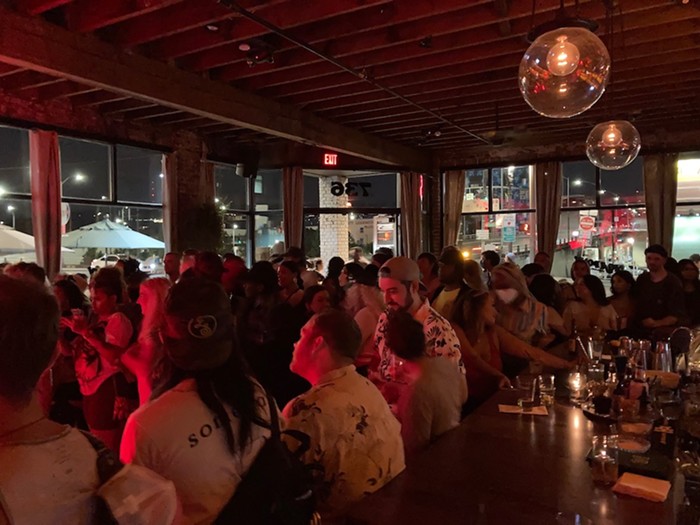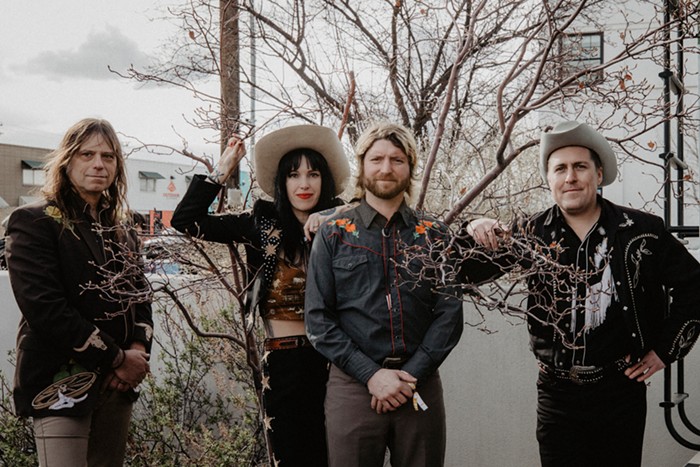IT'S A RAINY DAY in June. I'm having a cup of coffee with Pat Kearns, the lead singer and songwriter for Portland power-pop veterans Blue Skies for Black Hearts. Since forming over a decade ago, Blue Skies have been one of Portland's most consistent pop bands, and their latest, self-titled record is predictably wonderful.
It could all be for naught, though. I ask Kearns if he thinks anybody really cares about pop music anymore, and he essentially says he doesn't know. For any number of reasons, earnest, harmony-laden, post-Beatles guitar pop has, barring a few exceptions, had a difficult time finding an audience. And Blue Skies for Black Hearts—a relatively imageless band—are in a particularly tough spot, as they're too punk for the indie scene, but too benign and precious for the punks.
"We're still a mess that way," says Kearns. "We don't fit in the exact same box as a band like the Cry, who are more on the 'punk' side of the power-pop spectrum—although there is a lot of love between our two bands. In terms of power pop, I really identify with Big Star on an artistic level." And like Alex Chilton—or Emitt Rhodes, or Eric Carmen, or Andy Partridge—Kearns' priority is to write good songs, simply and unpretentiously.
My first encounter with Blue Skies for Black Hearts was in 2007, when I saw the band perform at PDX Pop Now! That particular year of PPN! was significant in that it symbolized a shift in Portland's musical status quo: Typhoon opened up the festival, and an unseasoned Starfucker played an inglorious daytime slot to a room full of kids who will forever reference their performance as an "I-saw-them-when" moment. But it was Blue Skies for Black Hearts, whipping through a bevy of near-perfect should-be hits, who appealed most to my pop-outcast sensibilities.
My first thought was that the name Blue Skies for Black Hearts was perfectly analogous to the group's music, and pop as a whole: A good pop song is an expression of raw, painful emotion, wrapped in an inescapably melodious sheen. Kearns believes Portland is an ideal environment for practicing the craft. "There's something about the rain, being inside," he says. "There's a bit of isolation that allows you to sort of get inside your own head, if you're predisposed to [that kind of] thing."
Seven years and three records later, Blue Skies are, despite some personnel changes, the same band they were when I first saw them. Which is a good thing. Power pop is possibly the only genre in which being formulaic is actually sort of preferable. Despite its prescriptions, it's a timeless style of music, and Kearns & Co. are free to exist outside the local scene's cool/uncool parameters as long as they continue not to care.
For those with an insatiable appetite for that next great hook, Blue Skies for Black Hearts is a pure-pop barbecue. It sounds like a vestige of an alternate 1970s where Big Star and Badfinger became the biggest bands in the world. And for those that don't appreciate immaculate pop music, great... more for the rest of us.



















